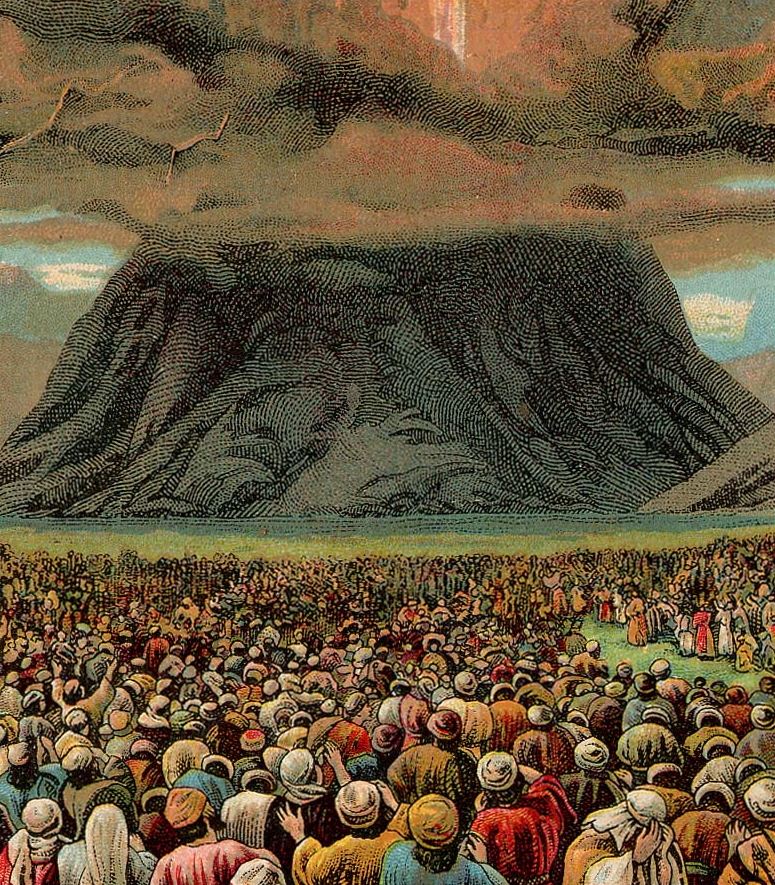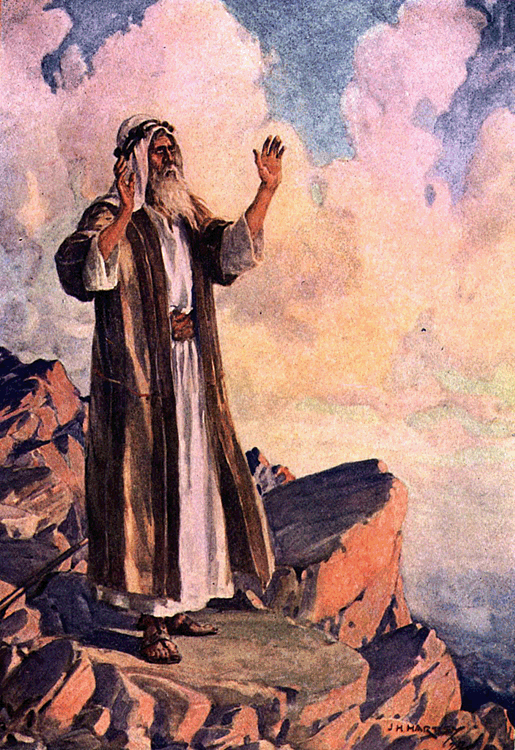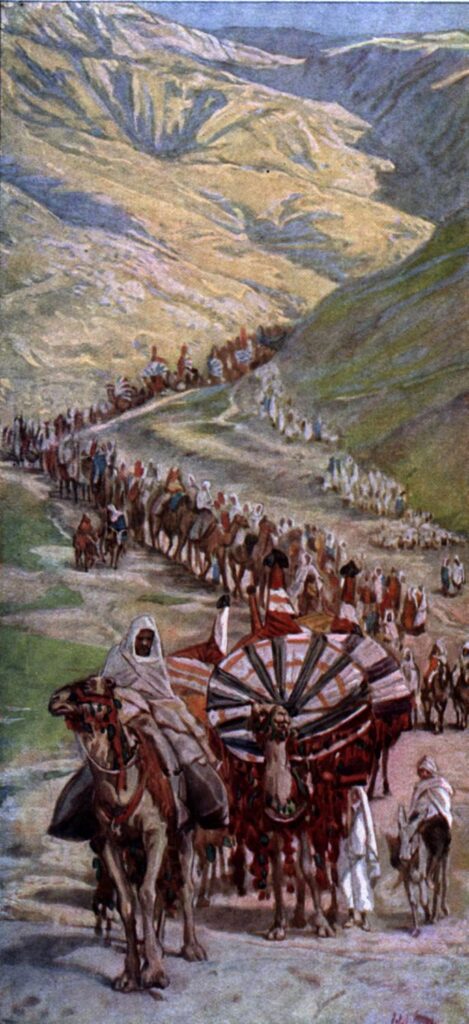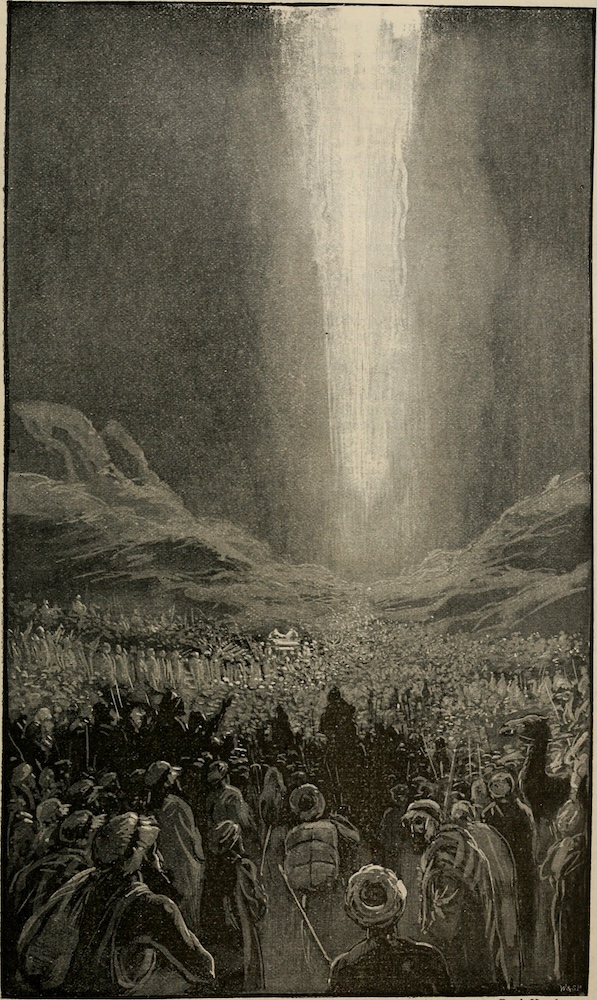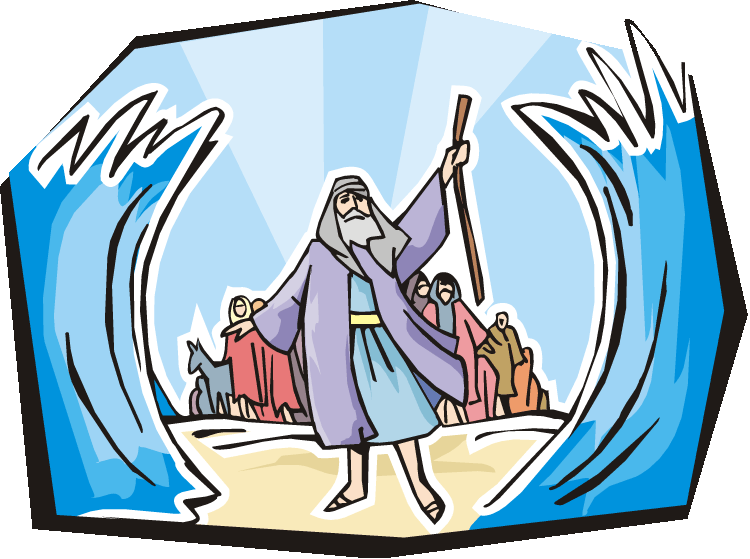
Exodus 21
Exodus 21–23, YHVH lays out for his people the basic principles of morality and righteousness.
YHVH’s Method of Teaching His Children His Divinely Revealed Truth
After having given the ten statements (or ten commandments), which forms the basic cornerstone of the YHVH’s whole Torah-law and out of which all of his other commandments emanate, YHVH now expanded on these basic principles in chapters 21 to 23. These scriptures contains the fundamental principles of how to love YHVH Elohim wholly and one’s neighbor as oneself (otherwise known as “the golden rule”).
Exodus chapters 20 to 23 contain the basic laws and principles for a society to function smoothly at a high level spiritually. They form the foundation of societal governance, which the new nation of Israel needed in order to survive without falling into anarchy while remaining in right relationship with their Elohim as a holy or set-apart nation surrounded by heathen nations.
It is also interesting to note that YHVH did not give Israel all 613 Torah laws at once, but introduced them to his people little-by-little on an as-need basis so as not to overwhelm them too quickly. He led and taught the children of Israel as loving and patient parents teach their children them little-by-little in small doses so as not to overwhelm them. This is the same method that the Spirit of Elohim use to this day to teach new disciples of Yeshua about the Truth of the Bible little-by-little and step-by-step. In this same manner, wise and godly Bible teachers will teach their disciples the principles of godly living.
YHVH started with the ten statements of Exodus 20, then expanded these ten into the basic laws in chapters 21 through 23, and he then goes from there instructing the Israelites in ways of righteous living. This teaches us another truth about how YHVH operates with his human children: he reveals himself to those who seek him slowly and methodically over time. He and his ways are too transcendently great and expansive for the mind of man to encompass all at once.
For my thoughts are not your thoughts, neither are your ways my ways, saith YHVH. For as the heavens are higher than the earth, so are my ways higher than your ways, and my thoughts than your thoughts. (Isa 58:8–9)
This measured and progressive method of divine truth revelation is exactly how the apostles chose to reveal YHVH’s truth to the new Gentile converts in Acts 15—little by little. First they heard the gospel message and came to Messiah, then they were given basic rules to follow in order to enter into the fellowship of the saints, then they would learn the laws of Moses over time each Sabbath in the instructional setting of the local synagogue.
Learning the divinely revealed truths of Elohim and his ways of righteousness as found in the Bible is a step-by-step process that will last a lifetime as each of us grows up from spiritual childhood into mature, adult sons and daughters of YHVH Elohim.
Exodus 21:1, These are the judgments [mishpatim]. Mishpat (pl. mishpatim) means “judgment, justice, ordinance, sentence, legal decision or seat of judgment.” Most of these laws (as listed in chapters 21 through 23) are civil in nature and govern our relationship with our fellow man as summarized by the phrase in the shema, “you shall love your neighbor as yourself” (Lev 19:18), or by “golden rule” of Yeshua: “Therefore, whatever you want men to do to you, do also to them, for this is the Law and the Prophets” (Matt 7:12). Thus, most of these laws would correspond to the second half (the fifth through tenth) of the ten statements of Exodus 20. Some, however, relate to the first four commandments, which show man how to love Elohim including prohibitions against worshiping idols and pronouncing the names of pagan deities as well as instructions regarding the seventh day Sabbath, tithing, obeying the Messenger of Elohim, and celebrating YHVH’s feasts).
In reality, chapters 21 to 23 are simply an expansion or extension of the fundamental principles laid down in YHVH’s ten statements of chapter 20. This then makes the ten statements a remez or “a hint” suggesting that there are additional laws that form the larger body of YHVH’s Torah. The ten statements of Exodus 20 are simply springboards that point man toward the larger body of YHVH’s legal structure that is laid out in his full Torah. The ten statements are like the cornerstone of the building of Torah. Each of these judgments can be traced back to a fundamental principle laid out in the ten statements. For example, the laws pertaining to servitude are to prevent men from stealing from his neighbor via debt and the consequences of one’s inability to pay one’s debts. The laws pertaining to physical violence against one’s neighbor are an extension of the law against murder, fornication. The law against bestiality is an extension of the law against adultery. The law prohibiting sorcery is an extension of the law against idolatry, while not afflicting the widows or fatherless is from the law against theft. The prohibition against slander comes is an extension of that against lying, and the biblical feasts or annual sabbaths spring out of the weekly Sabbath. Being obedient to the Messenger of YHVH comes out of the first and second statements about YHVH being the Elohim of Israel and following no other gods. Moreover, the death a person by someone’s animal is an expansion of the “thou shalt not murder” command. The charging of usury on loaned money is an expansion of the commands not to covet or steal. The land sabbath and annual sabbaths (i.e., YHVH’s appointed times or moedim) are an expansion of the weekly Sabbath.
It should be obvious to see how all of YHVH’s Torah commands can easily be expanded out of the original ten, which form the foundation for the rest of the Torah. Additionally, the approximately 1056 imperative commands found in the Testimony of Yeshua all spring from the original 613 commandments found in the Torah. YHVH’s Word would be in opposition to itself if any of the 1056 were to contradict or nullify any of the Torah’s 613. If they did, that would make YHVH into a liar and his word inconsistent with itself. This cannot be (Mal 3:6; Heb 13:8; John 10:35)!
Exodus 21:6, Bore his ear. The servant who of his own freewill and out of love for his master chose to remain in his maser’s household forever (i.e., the rest of his life) was permanently marked in this manner to signify that he was willing to hear and obey all his master’s commands punctually. This is a spiritual picture of the disciples of Yeshua who chose to become his bond servants (e.g., Rom 1:1; Gal 1:10; Col 4:12; Tit 1:1; Jas 1:1; Jude 1; Rev 1:1; 15:3). Not only do the true disciples of Yeshua accept him as their Savior, but they submit to him as their Lord or Master. They accept the fact he has purchased them with his blood, and that they now owe their lives to him. They have willingly chosen to dwell in his spiritual house forever, to serve him and to hear and to do all that he commands of them. Yeshua is, after all, not only the saint’s Savior but also his Lord or Master. Why? Because the saint was”bought with a price” (1 Cor 6:20; 7:23); that is, “you were not redeemed with corruptible things, like silver or gold, from your aimless conduct received by tradition from your fathers but with the precious blood of Christ, as of a lamb without blemish and without spot” (1 Pet 1:18–19).
Forever. The Hebrew word olam translated as “forever” throughout the Scriptures means “as long as the conditions exist” and not necessarily “for eternity” as the meaning of the English word “forever” often implies. In this verse, forever obviously means “as long as the servant shall live” and not “for eternity.” When the Hebrew word v’ad translated as “and ever” is added to olam (forever), the concept of eternity is connoted (e.g., YHVH’s reign as king is for eternity, Exod 15:18; Ps 10:16; the resurrected righteous will live for eternity, Pss 21:4; 45:6; Dan 12:3; during the millennium, righteous redeemed Israelites will walk with YHVH for eternity, Mic 4:5; the righteous will keep YHVH’s Torah for eternity, Ps 119:44; the righteous will praise YHVH for eternity, Ps 145:1, 2, 21).
Exodus 21:10, Takes another wife. Polygamy (also colloquially referred to as plural marriage or patriarchal marriage) is neither prescribed nor proscribed in the Bible. In biblical times, its practice was infrequently occasioned out of necessity usually because of the barrenness of a man’s first wife. A man occasionally needed to take a second wife to bear him a son to carry on the family tribal or kingly lineage or for the purpose of political alliances. However, in every instance where polygamy is recorded in Scripture, it is accompanied by marital and familial jealousy, rivalry, strife and division (e.g., Abraham, Jacob, Samuel’s parents, David and Solomon). Thus, one cannot look to polygamy as a biblically embraced ideal marriage situation. Rather, YHVH gave Adam one wife (not two or more), and commanded him to procreate with her. One wife for life is the biblical ideal. However due to less than ideal circumstances, human weakness or outright carnal reasons, YHVH allowed for a man to take another wife, and if done, he was commanded to not favor his second wife over his first as this verse states.
Exodus 21:22, Hurt a woman with child.The Bible on the Sanctity of Life and Abortion This passage is one of the strongest pro-life, anti-abortion verses in the Scriptures. Clearly, this passage teaches us that life begins in the womb. The penalty for a man who is responsible for the death of an unborn child is death (v. 23.) Could any clearer statement be made about how the Creator feels about the sanctity of life? Here are some statistics about abortion:
- 42 million abortions occur worldwide each year (that’s 115,000 per day).
- In 2008, 1.21 million abortions occurred in the U.S.
- From 1973 to 2008, 50 million legal abortions occurred in the U.S.
- 22 percent of all U.S. pregnancies end in abortion.
- In 2007, 84% of all abortions were performed on unmarried women.
At current rates, nearly one-third of American women will have an abortion.
(Sources of information: abortionno.org/Resources/fastfacts.html; guttmacher.org/pubs/fb_induced_abortion.html; abort73.com/abortion_facts/us_abortion_statistics/ — this is now a dead link).
Thankfully, as of this writing, the abortion rate in the US is slowly, but steadily dropping. In 2000 according to the National Right to Life (NRL), 1.36 million babies were aborted. The Center for Disease Control (CDC) puts the number at 857,475. In 2014 according to the NRL the number of abortions in the US dropped to 926,240. According to the NRL the total number of abortions performed in the US from 1973 to 2013 was nearly 58.6 million, while the CDC puts the number at nearly 51.9 million.
The murder of the innocent children is perhaps the greatest sin that a nation can commit. Abortion is a form of child sacrifice, which is something many ancient cultures practiced (e.g., the Aztecs, Incas, Phoenicians, pre-Islamic Arabs, and the biblical Canaanites). In the Bible, YHVH condemns the practice of the heathens and apostate Israelites who made their children pass through the fire in the worship of the demon-god Moloch (see Lev 18:21; 20:2–5; Deut 12:30–31; 18:10). YHVH placed on the nation of Israel a severe judgment for sacrificing its children to Moloch (or Chemosh). He promised that their cities would be destroyed, that their nation would be conquered by foreigners, and that the Jews would be taken captive (see Jer 7:30–34; 32:35–36).
Exodus 21:22 clearly delineates the Creator’s position that human life begins at conception (see also Ps 139:13–16; Jer 1:5; Luke 1:15, 41, 44), not at birth as he so-called Pro-Choice deceivers aver.
Exodus 21:26–27, Eye…Tooth. This is the well known “eye for an eye and tooth for a tooth passage.” This is a remez meaning that these verses lay out a principle that is broadly applicable to many situations. That is to say, what this verse is teaching us is that justice is properly served when the crime fits the punishment or when the criminal is himself deprived of that which he deprived his victim. To be sure, such a punishment is a strong deterrence to criminality! In the case of one causing another person an injury for which one cannot recompense the victim (in the case of a loss of an eye or tooth), the criminal must suffer the same fate as his victim. In the case where a criminal causes harm to another (such as theft), which can be repaid, it is the criminal’s responsibility to make restitution.
Exodus 22
Continue reading


